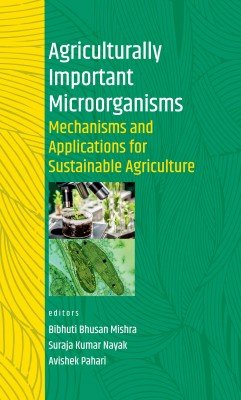| This book endeavors to bring together the knowledge and expertise of scientists and academics working in the field of Agriculturally Important Microorganisms (AIMs). It provides comprehensive information on various AIMs, their mechanisms of action, and modes of application for the purpose of promoting sustainable agriculture. The book's main focus is on the potential of microbes in nitrogen fixation, phosphorous and potassium solubilization, and tolerance to various environmental conditions. Additionally, it discusses the use of Plant Growth Promoting Rhizobacteria (PGPR) in enhancing crop productivity. These microbes reside in the rhizosphere of plant roots and promote plant growth through direct and indirect mechanisms such as solubilizing phosphate, potassium, and zinc, producing siderophore, IAA, Hydrocyanide, and fixing ammonia, among other processes.
The book also highlights the potential of PGPR as a means of reducing the reliance on chemical fertilizers and other agrochemicals. Furthermore, it provides an insight into the use and application of nano-biofertilizers for sustainable agriculture. In summary, this book offers a comprehensive overview of the potential of AIMs and PGPR in promoting sustainable agriculture and reducing the use of chemical fertilizers. |

















